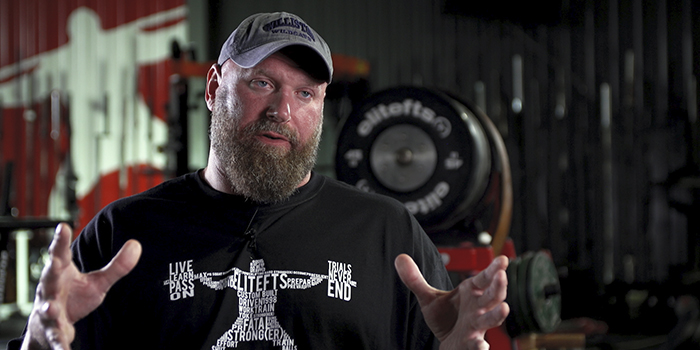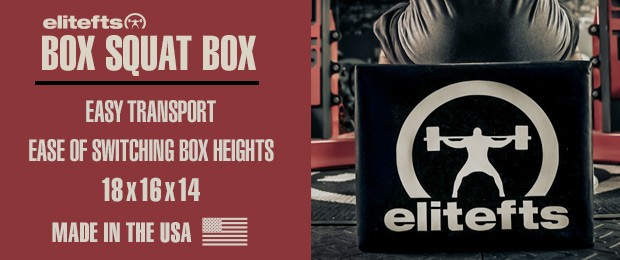
Young coaches — and yes, that includes you interns and graduate assistants, too — listen up. elitefts Coach Matt Rhodes, who is the head strength and conditioning coach at Morehead State, has some advice for you kids. (Yes, kids. Most GAs he works with are in their 20s, while Matt’s in his 40s. To him, you are kids.)
When you get into something, you’re going to have what you were taught. Maybe that was what you did in college or learned in a book, and that’s your basis from how you go from there.
Matt sees a 50/50 split in terms of openness in young coaches doing things how Matt wants them done. Half are open to what he has to teach them because they’re interested in learning. The other half, however, will go back on what they’ve already learned.
“I don’t care what you did. I don’t care what you know. This is how I did it in college. The way we do it now is very different. There’s a lot of things that are similar — we squat, we clean, we press, all that stuff is basic, but it’s set up very differently, it’s organized differently, the workouts themselves are run differently than the way it was.”
Rather than relying solely on the things you learned in school, Matt encourages young coaches to be open to new ideas — and he’s still trying to be as open as he can, too. Just take a look at his coaching logs and the programs he has there. They’re heavily influenced by powerlifting and bodybuilding: “Get strong, build a buttload of muscle.”
With the bodybuilding influence, Matt looks at balance. In bodybuilding, you can’t let one part of your body get too big. From an athlete standpoint, balance is about injury prevention and staying healthy and working to even out any imbalances the sport might create.
There’s also Olympic lifting influence in his programs — there’s even some rudimentary gymnastics thrown in there for tumbling. He throws in a little CrossFit into the mix with circuits... and of course, there’s strength and conditioning elements.
“Draw from a lot of different things. There’s a big 5/3/1 influence in what I do. There’s a little bit of a Westside influence... you know, the conjugate idea of training multiple skills at the same time. At different times of year, there’s more of a focus on one skill than another, but there’s always multiple performance skills that we’re working on... it’s all in there.”
The problem is that young coaches come in knowing one thing, and they know just enough to be incredibly dangerous because they don’t really know anything.
If you’re feeling a little called out right now, don’t feel too bad. Matt was the same way when he was just starting out, too... and if you’ve watched him talk about his journey to becoming a strength coach, he definitely wasn’t a kid in his 20s.
He sees this problem because he was that young strength coach, and so Matt recognizes those attitude and beliefs. With age and experience, he’s come around to realize that there are multiple paths that work very well. You just have to be willing to try them and learning them — even when you disagree with them.
“I’m just a waypoint in their career. Learn how I want things done. Learn the why. Understand everything you possibly can because at the end of it, you’ve either learned a better way to do things or you’ve learned what not to do. Either way, you’re that much closer to figuring out the way you want things done. I think it’s incredibly important to learn about stuff you don’t know, you disagree with because it’s only going to help you, in the long run, figure out what you want to do.”











2 Comments